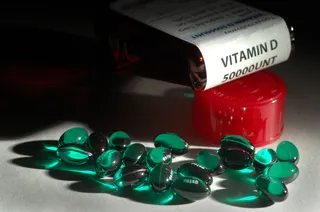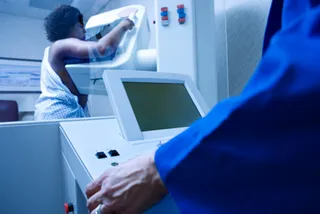Health Rewind: Black and White Women Absorb Vitamin D Exactly the Same
Vitamin D and women, STD rates and more.

1 / 11
Black and White Women Absorb Vitamin D Exactly the Same - Even though 97 percent of African-Americans are vitamin D deficient, a new report found that Black women don’t need to take more of the supplement than white women. Researchers from Creighton University School of Medicine found that vitamin D absorbs and metabolizes exactly the same in both groups, reported Red Orbit. —Kellee Terrell (Photo: Charlotte Observer/MCT /Landov)
Photo By Charlotte Observer/MCT /Landov

2 / 11
Asians and Latinos Surpass Black Males in Applying for Medical School - In the late 1970s, African-Americans males were ahead of Asians and Latinos as first-time applicants for medical school. Black male applicants have increased by 31 percent (2,361 in 1977 to 3,215 in 2011) while Hispanic applicants have more than tripled to 3,459, and Asian applicants increased to 8,941, according to Med Page Today. (Photo: Joe Raedle/Getty Images)

3 / 11
Lean Cuisine Recall: Glass Found in Frozen Ravioli - Another day, another food recall: This time, it’s Lean Cuisine’s turn. According to a Nestle press release, people are urged to return their Culinary Collection Mushroom Mezzaluna Ravioli with the UPC label 13800-58358 with production codes 2311587812 and 2312587812 and a "best before date" which appears as DEC 2013. They believe that glass may have gotten into the meals by accident. (Photo: Lean Cuisine)

4 / 11
CDC: There Are 20 Million New STD Infections a Year - A new report from the Centers for Disease Control and Prevention found that each year there are 20 million newly diagnosed STD cases and half of those cases happen in people under 25. Even worse? In total, there are 110 million STD infections — HIV, chlamydia, HPV and gonorrhea to name a few — among men and women right now. (Photo: Brendan Smialowski/Getty Images)

5 / 11
Fraternities and Sororities Stand Up Against Malaria - To address the growing malaria epidemic in Africa and help provide treatment, Greeks for Good is launching a new program, Power of One. The organization is calling for all sororities and fraternities to get involved to raise money for this cause. The chapters that raise the most can win a chance to meet Smash’s Katherine McPhee and have her come to their campus. (Photo: Greeks for Good)
ADVERTISEMENT

6 / 11
Working Out Four Days a Week Is Better Than Six? - To lose weight and be healthy, working out all the time may not be better, says a new study. Researcher from University of Alabama found that working out four days a week—cardio for two days and lifting weights the other two—reaped more benefits than those who worked out six days a week, says the New York Times. (Photo: GettyImages)

7 / 11
Cyberbullying as Dangerous as Physical Threats - Cyberbullying isn’t mere child’s play; it can be as harmful as physical threats, says researchers from Michigan State University. Their new report found that “children who faced ‘cyberbullies’ or were bullied through their cellphone were just as likely to skip school or think about suicide as kids who were picked on in person,” wrote HealthDay News. (Photo: GettyImages)

8 / 11
Health Rewind: Why Black History Month Is Important to Our Mental Health - A recent two-part series in Psych Central highlights the importance of remembering mental health when celebrating Black History Month. Part 1 emphasizes the barriers that stand in our way of seeking care: Gender, stigma and lack of cultural support. Part 2 discusses why it’s so important for the African-American community to get mental health care.(Photo: Fuse / Getty Images)

9 / 11
Type 1 Diabetes Up 70 Percent Among Kids - We know that Type 2 diabetes rates are going up among children because of unhealthy eating and sedentary lifestyles. But a new report surprisingly says that Type 1 diabetes is also on the rise. Researchers from the University of Pennsylvania School of Nursing also found that the rates of Type 1 diabetes tripled among Black children under five years old, reported HealthDay News.(Photo: Philadelphia Inquirer/MCT /Landov)

10 / 11
Healthier Cuisine Equals More Profits for Restaurants - Offering low-calorie meals could mean better business. Researchers from the Hudson Institute found that over a five-year period, restaurant chains that had lower-calorie items — 500 and fewer calories — had “better sales growth, greater increases in customer traffic, and stronger gains in total food and beverage servings” compared to places that slashed healthier meals, reported Time.com. (Photo: Stephen Chernin/Getty Images)
